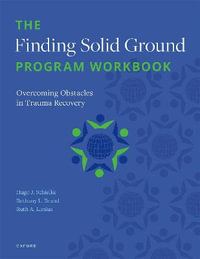| Foreword | p. ix |
| Exposing Coercive Influences in the Criminal Justice System: An Agenda for Legal Psychology in the Twenty-First Century | p. 1 |
| The New (and Hidden) Face of Coercion in Modern Criminal Justice Practices | p. 2 |
| Psychological Coercion and Its Role in America Jurisprudence: Scholarly Predecessors | p. 3 |
| Interrogations, Confessions, and Entrapment: Current State of Knowledge | p. 4 |
| References | p. 7 |
| Questions | p. 9 |
| Red Cross Interview (Interrogation) | p. 10 |
| Solitary Confinement | p. 14 |
| Military Interrogation | p. 20 |
| Political Interrogation | p. 25 |
| Answers | p. 30 |
| References | p. 34 |
| The Third Degree and the Origins of Psychological Interrogation in the United States | p. 37 |
| Introduction | p. 37 |
| The Third Degree | p. 42 |
| The Third Degree in American History | p. 51 |
| Turning Away from the Third Degree: The Origins of Modern Interrogation | p. 56 |
| The Evolution of Modern Police Interrogation: Creating Human Lie Detectors and Psychological Manipulators | p. 60 |
| Conclusion | p. 78 |
| References | p. 81 |
| "You're Guilty, So Just Confess!" Cognitive and Behavioral Confirmation Biases in the Interrogation Room | p. 85 |
| Interview-Based Judgments of Truth and Deception | p. 88 |
| Behavioral Confirmation in the Interrogation Room | p. 94 |
| Minimizing Cognitive and Behavioral Confirmation Processes | p. 96 |
| References | p. 102 |
| The Police Interrogation of Children and Adolescents | p. 107 |
| Contemporary Police Interrogation | p. 108 |
| Police Interrogation of Juveniles | p. 109 |
| Children's and Adolescents' Abilities in Forensic Interviews | p. 114 |
| Preliminary Study on Interrogation of Adolescents and Young Adults | p. 117 |
| Conclusions | p. 122 |
| References | p. 123 |
| Tales From the Juvenile Confession Front: A Guide to How Standard Police Interrogation Tactics Can Produce Coerced and False Confessions from Juvenile Suspects | p. 127 |
| The Law | p. 128 |
| The Crimes | p. 130 |
| The Interrogations | p. 132 |
| The Aftermath | p. 143 |
| Recommendations | p. 151 |
| References | p. 158 |
| Mental Retardation, Competency to Waive Miranda Rights, and False Confessions | p. 163 |
| "Voluntary, Knowing, and Intelligent": The Legal Analysis of Waiver of Miranda Rights | p. 164 |
| Research on Defendants with Mental Retardation's Understanding of the Miranda Warning | p. 165 |
| Comprehension of Miranda Rights Tests | p. 166 |
| Review of the Literature | p. 167 |
| Characteristics of Persons with Mental Retardation That Increase Vulnerability | p. 168 |
| Research on Interrogative Suggestibility in Persons with Mental Retardation | p. 170 |
| Susceptibility to False Confessions in Interrogations | p. 171 |
| Comparisons with Juvenile Populations | p. 172 |
| Suggestions for Forensic Evaluations | p. 173 |
| Assessment of Understanding of Miranda | p. 173 |
| Measures of Intelligence, Linguistic Abilities, and Reading Skills | p. 173 |
| Using Information on Adaptive Skills | p. 174 |
| Interview Strategies | p. 175 |
| Implications for Policy and Practice in the Criminal Justice System | p. 175 |
| References | p. 177 |
| Attempts to Improve the Police Interviewing of Suspects | p. 181 |
| The Situation Prior to Compulsory Audiotape Recording | p. 182 |
| What Audiotape Recording Revealed | p. 183 |
| A New Ethos and Training Program | p. 185 |
| Has the New Training Program Achieved Its Objectives? | p. 188 |
| The Views of the Interviewees | p. 192 |
| Supervision, Management, and a National Framework | p. 193 |
| References | p. 195 |
| Bias and Accuracy in the Evaluation of Confession Evidence | p. 197 |
| Confession Evidence and Its Evaluation | p. 198 |
| Presentation Format of Confession Evidence: The Growing Emphasis on Videotape | p. 200 |
| Evidence for a Biasing Effect of Camera Perspective on Evaluations of Videotaped Confessions | p. 202 |
| Does Videotaping Lead to More Accurate Evaluations of Confession Evidence? | p. 208 |
| Policy Implications of the Research on Videotaped Confessions | p. 210 |
| References | p. 211 |
| The Psychology of Entrapment | p. 215 |
| Two Entrapment Cases with Different Outcomes | p. 215 |
| The Nature of Entrapment as a Defense | p. 219 |
| One Problem: Two Definitions of Entrapment | p. 221 |
| The Objective Definition of Entrapment | p. 223 |
| The Subjective Definition of Entrapment | p. 223 |
| A Second Problem: Punishment for Acts or for Dispositions? | p. 224 |
| Another Problem: Jurors' Reaction to the Entrapment Defense | p. 225 |
| Research on Entrapment | p. 225 |
| The Measurement of Attitudes | p. 226 |
| Determinants of Verdicts | p. 231 |
| Edkins' First Study | p. 232 |
| Edkins' Second Study | p. 236 |
| What Reforms Are Needed? | p. 238 |
| Just Who Should Be the Subject of a Sting Operation? | p. 240 |
| Seek to Clarify the Definitions of Entrapment and Jury Instructions | p. 241 |
| Include a Nullification Instruction to the Jurors | p. 242 |
| Diminish the Use of the Subjective Definition | p. 242 |
| References | p. 244 |
| Expert Psychological Testimony on the Psychology of Interrogations and Confessions | p. 247 |
| Crane v. Kentucky (1986) | p. 247 |
| The Frye, Rule 702, and Daubert Standards | p. 251 |
| California v. Page | p. 251 |
| The Significance of Page for Expert Testimony on Interrogations and Confessions | p. 257 |
| Recent Case Decisions Involving Expert Testimony on Interrogations and Confessions | p. 257 |
| Summary and Conclusions | p. 261 |
| References | p. 262 |
| So What's a Concerned Psychologist to Do? Translating the Research on Interrogations, Confessions, and Entrapment into Policy | p. 265 |
| Affecting Change though a Consensus-Based "White" Paper | p. 266 |
| Affecting Change through the Individual Case | p. 273 |
| Affecting Change through Executive Branch Policy | p. 276 |
| Affecting Change through Education | p. 277 |
| Conclusion | p. 278 |
| References | p. 279 |
| Index | p. 281 |
| Table of Contents provided by Ingram. All Rights Reserved. |


























